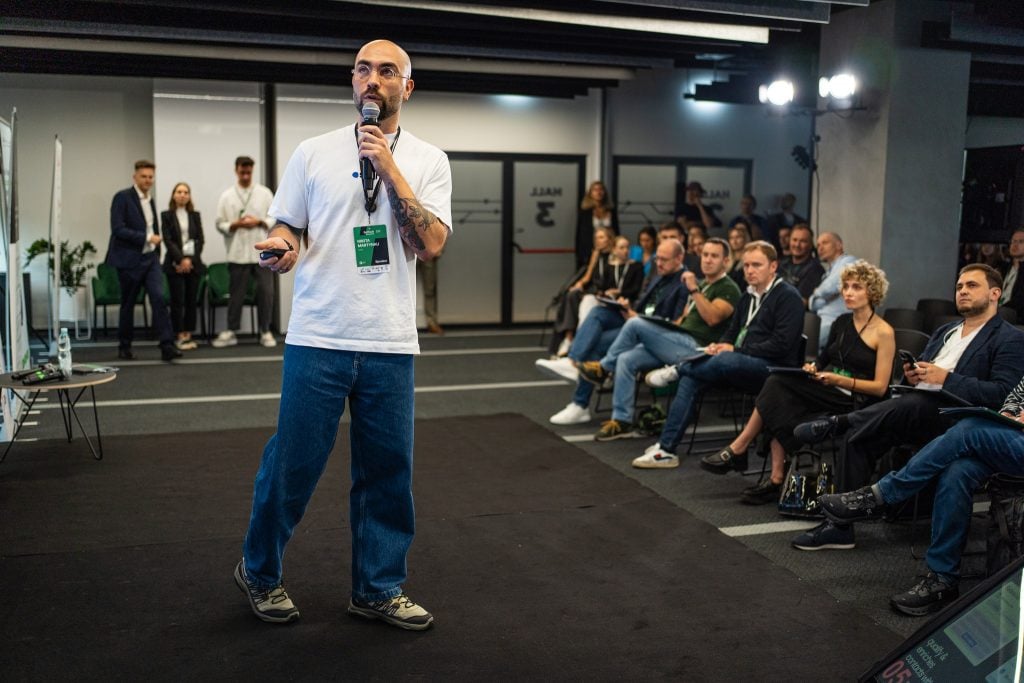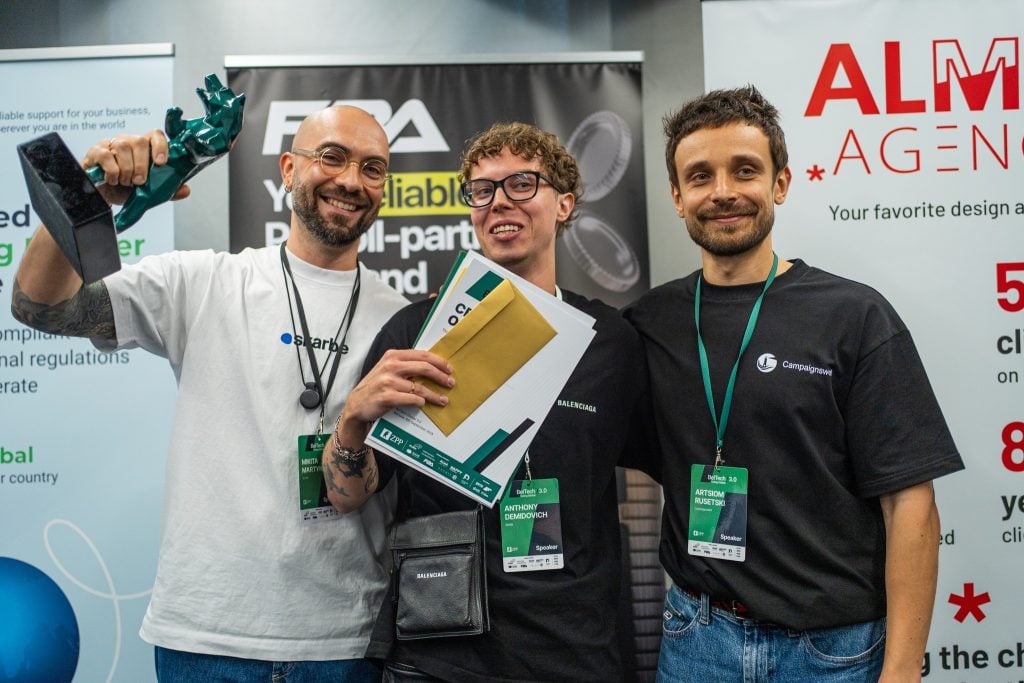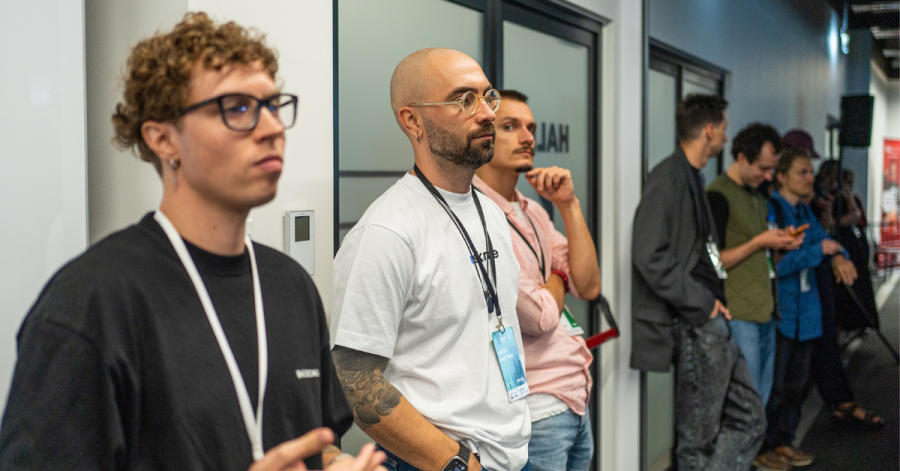Belarus built a large, export-oriented IT sector during 2010s that by the 2020 employed tens of thousands and exported over a billion USD of software and services. “The tech sector became a solid part of the country’s GDP, and brought a completely new perspective to the nation”, noted Kseniya Tarasevich for The Recursive, in her piece about the identity crisis of Belarusian tech companies.
However, in the last few years, political upheaval in the country and the war in the region triggered a substantial emigration of tech talent, corporate relocations and reputational stresses. Still, a few tech hubs remain active in Belarus, while a dispersed diaspora of founders keeps the ecosystem alive today. One of the most significant sanctuaries they have found is in Poland.
Belarusian tech community redefining its future
Over the past five years, thousands of Belarusian IT professionals and entrepreneurs have left the country for business and funding opportunities. Between 2020 and 2023 alone, more than 150 startups relocated abroad. Many landed in neighbouring Poland through programs such as Poland’s Business Harbour, which supports Belarusian tech migration, and the Belarus Business Center at ZPP (Union of Entrepreneurs and Employers of Poland), which assists Belarusian companies as they expand or relocate to Poland and across Europe. Community platforms like the international Imaguru Startup HUB have also played a key role.
Despite that support, at first many founders faced numerous issues in Poland, from opening bank accounts to finding funding. “Investors don’t want to invest in Belarusian startups,” said Tania Marinich, CEO and founder of Imaguru, which now operates out of Vilnius, Warsaw, and Madrid, to Sifted in 2023. “Why should they make trouble? It’s much better to invest in a [Polish] or Ukrainian startup. Many accelerator programmes have closed their doors to Belarusian founders.”

Over the past year, everyday matters have become somewhat easier — people are settling in, obtaining residence permits, and in some cases even new citizenships, says Maryia Lemiaza, Founder & CEO of SMAR GLOBAL, based in Poland. However, the banking landscape remains uneven: “For new companies with Belarusian passport holders, due diligence is stricter, processes take longer, and it often takes more than one attempt. This reflects the overall risk-based approach of Polish institutions and the heightened EU sanctions environment around Belarus, which naturally makes banks more cautious,” she notes.
To support the community further, the ZPP’s Belarus Business Center organizes an annual conference in Warsaw where specialists and founders with Belarusian roots can connect, share solutions, and strengthen ties.
Belarusian rising stars
This year, BelTech Global 3.0 — Going Global, brought together more than 400 entrepreneurs, investors, and C-level specialists from 15 countries to share their experiences of building businesses and careers outside their native country. Highlight were the pitch sessions, where 7 rising startups with Belarusian roots presented their products to international investors. We wanted to showcase them beyond the event, so read further to learn more about them.
Skarbe

Skarbe is your personal AI sales assistant — built for people who sell but don’t want to deal with CRMs. It auto-logs your calls and emails, suggests next steps, writes follow-ups, and keeps your deals moving. Designed for founders, solopreneurs, and small B2B sales teams.
Skarbe was founded by Mikita Martynau (CEO) and Alex Talyuk (CTO). Ilya Korzun, COO, initially became involved in Skarbe as the company’s first angel investor. In June 2025 they secured $600,000 Pre‑Seed funding, led by FIRSTPICK.
Smakoza
Smakoza is a turnkey solution for restaurants, enabling them creation of branded mobile app, website, and QR menu. It gathers restaurants customers into a CRM system, tracks their preferences, and provides RFM analysis. Smakoza connects restaurants with customers through a loyalty program, push notifications, and over 30 marketing tools. The Smakoza also has POS and ERP system that helps manage restaurant operations — from tracking delivery staff locations to calculating when it’s time to restock ingredients.
Smakoza was founded by Ivan Klimko.
Lea AI
Lea AI is a skincare recovery platform — a skin’s digital record in one place. The platform analyzes users’ skin conditions through advanced image recognition and tracks environmental factors such as UV exposure, humidity, and pollution to deliver dynamic, tailor-made skincare routines. By integrating genetic predispositions and medical records, Lea ensures skincare recommendations are scientifically accurate and highly personalized. Users can monitor progress over time, receive product suggestions, and adjust their routines according to changing conditions
Founder of Lea AI is Veronika Zhdanovich.

Campaignswell
Campaignswell is a predicitve analytics platform for ad-driven businesses. It helps identify high-LTV customers and scale ad spend. Their clients are leading mobile apps, e.g. Replika (№1 Chatbot Companion), VPN Lumos (30+ mln users), Dr. Kegel (trusted by 4+ mln men worldwide).
Campaignswell was founded by Arty Rusetski, Artsiom Kazimirchyk and Aleksei Ivushkin.
WABB
WABB is a WhatsApp automation platform specifically designed to support small and medium-sized businesses (SMBs) in enhancing customer engagement, optimizing support operations, and maximizing sales opportunities. By offering a flexible, no-code chatbot builder, seamless integrations, and powerful automation features, WABB enables businesses to stay connected with their customers 24/7 — without increasing overhead costs.
WABB was founded by Anthony Demidovich (CEO) and Ilya Melnik.
Unschooler

Unschooler is an AI-powered course platform for companies. At its core is a AI-first learning management system that maps all employee skills to business objectives. For missing skills and skill gaps, it generates tailored courses — literally in just 15 minutes — helping reduce typical learning budgets. Each course includes a personalized AI assistant based on the company’s internal knowledge sources. Besides that, over 1,500 consultants around the world use their platform to build their own academies and distribute their unique expertise through our white-label solution.
Unschooler was founded by Lena Dorogenskaya.
Trona
Trona is the AI Hiring Engine: an autonomous system embedded directly into communication channels, before any ATS or HRIS. It removes hiring noise, scales conversations, and restores what hiring was always meant to be – meaningful human decisions.
Trona was founded by Mikalai Suzdaltsau, Alexander Godzevich (CCO) and Nick Shershan (CTO).







